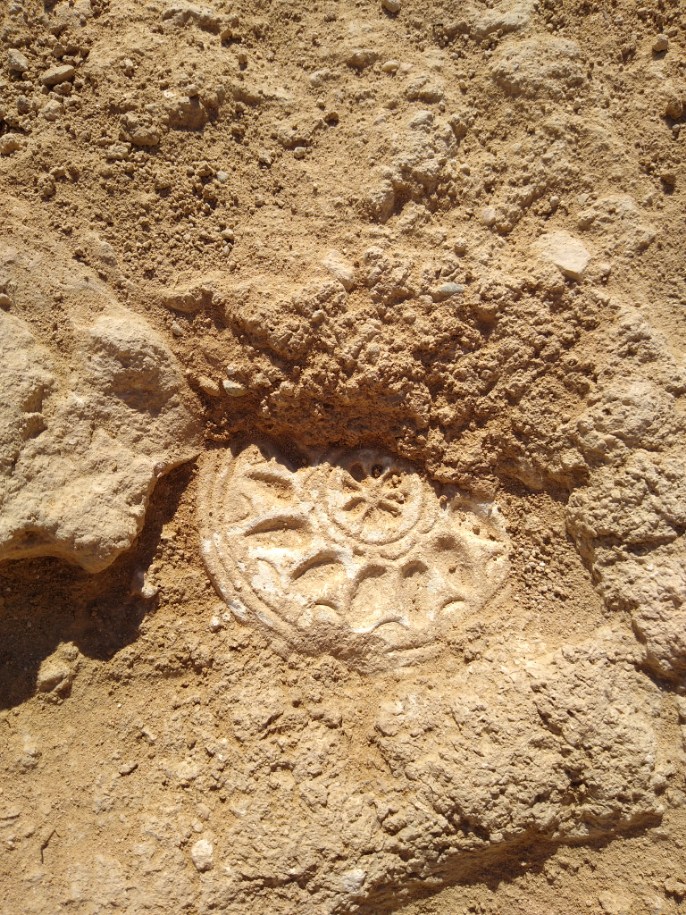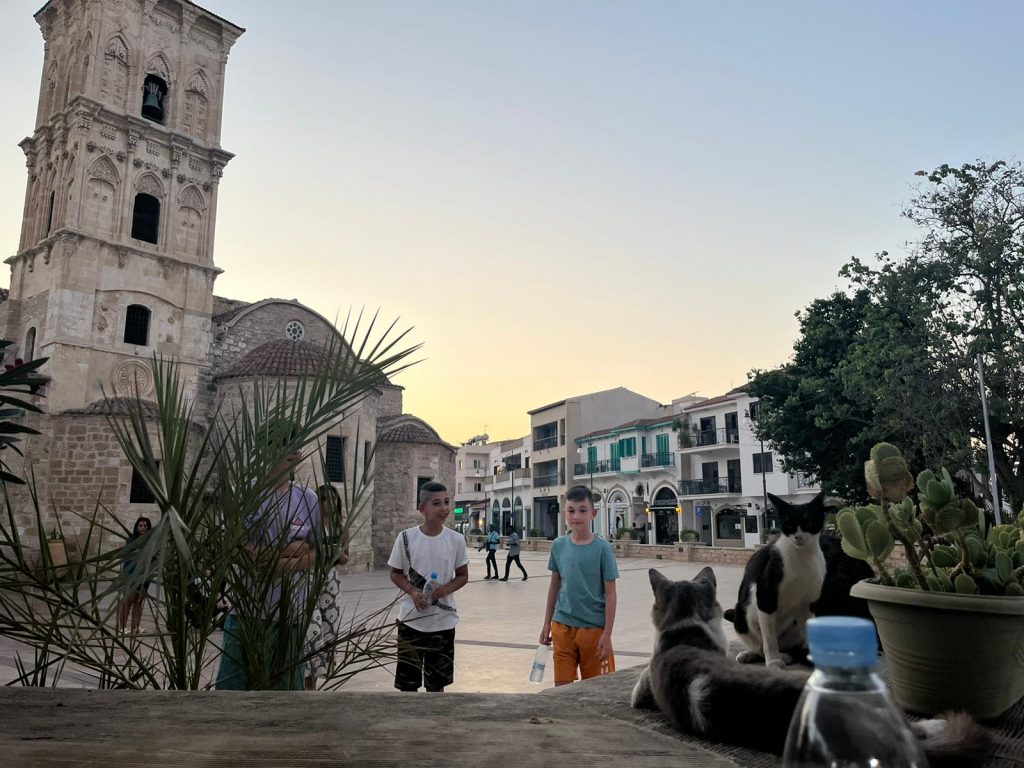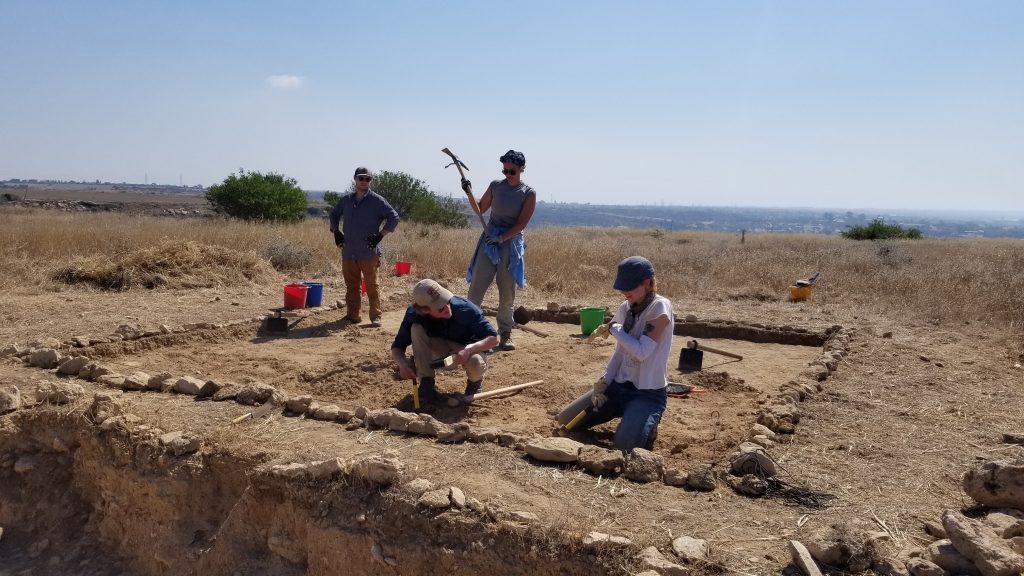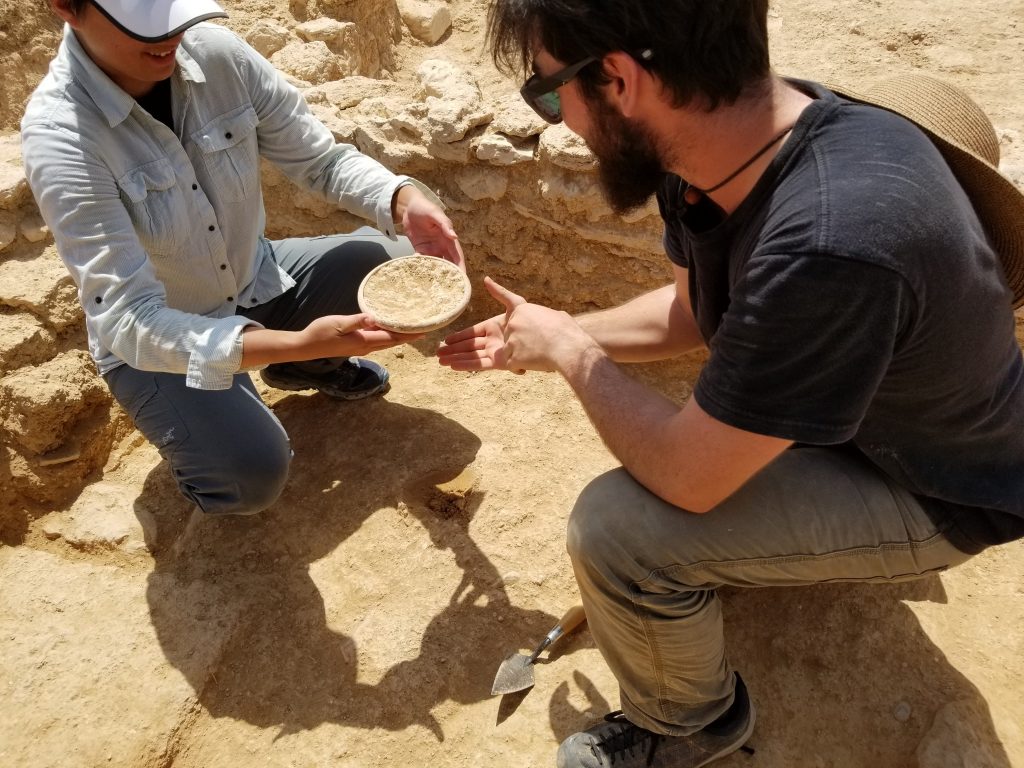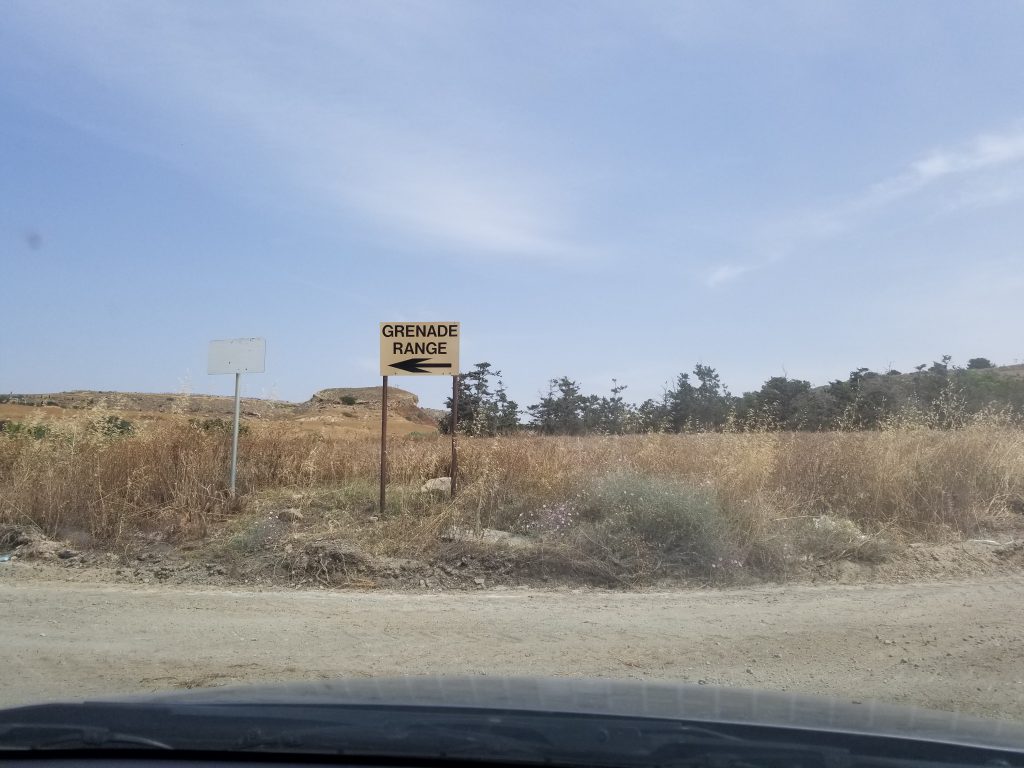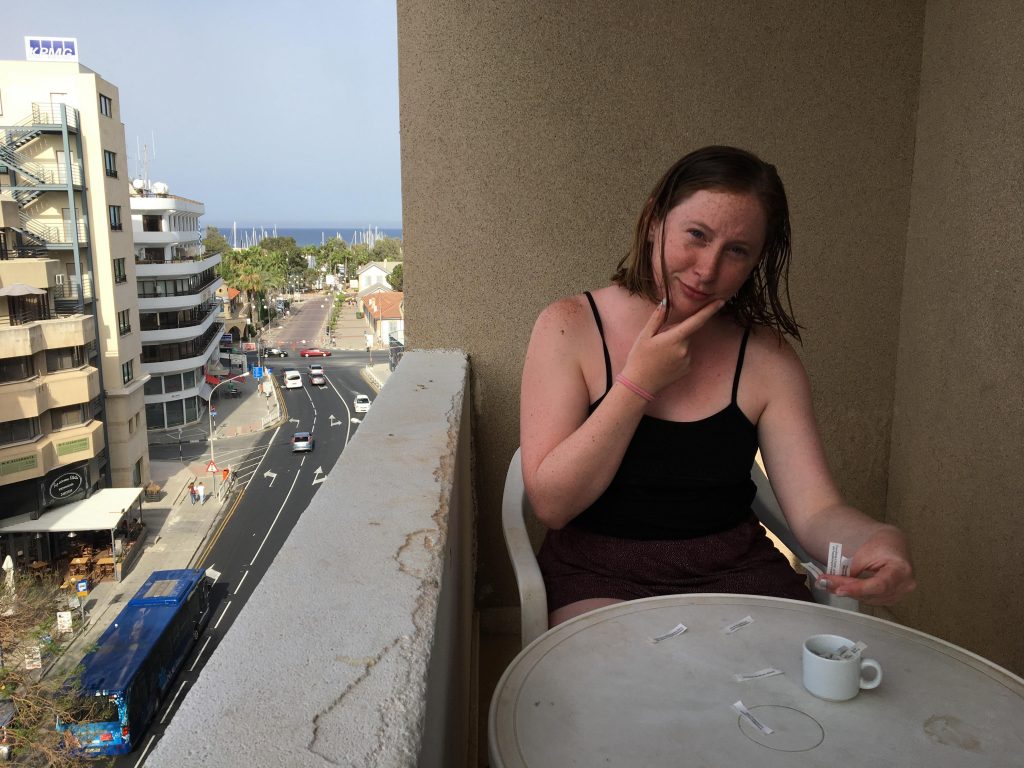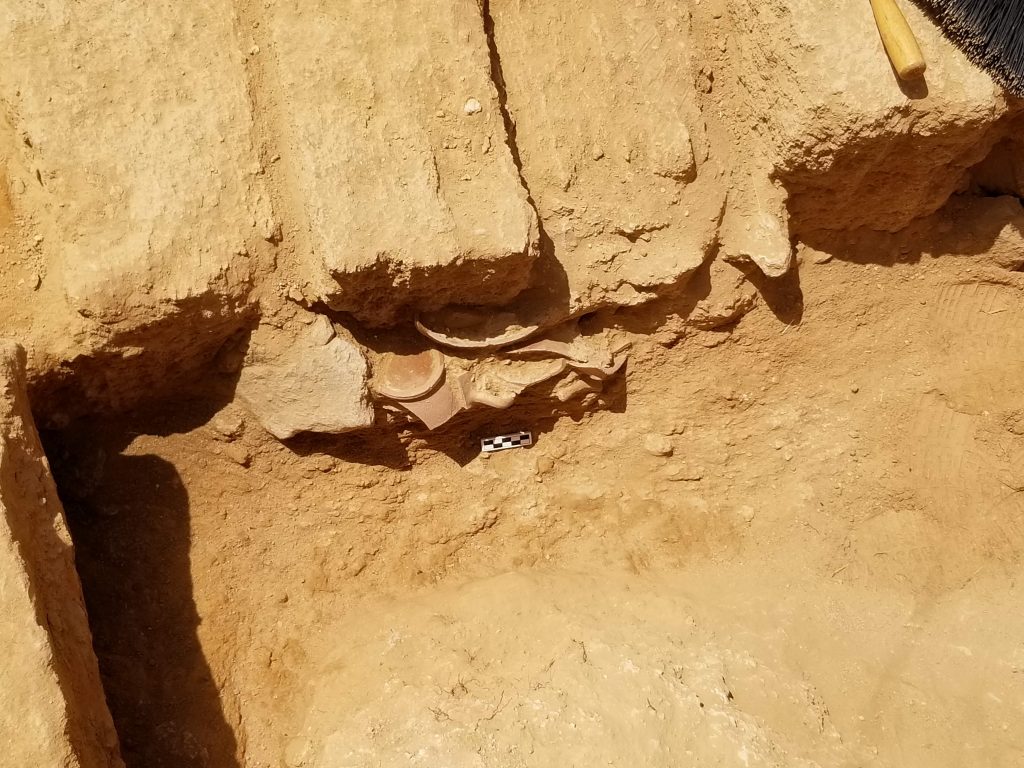(Guest post by Amir Weksler)
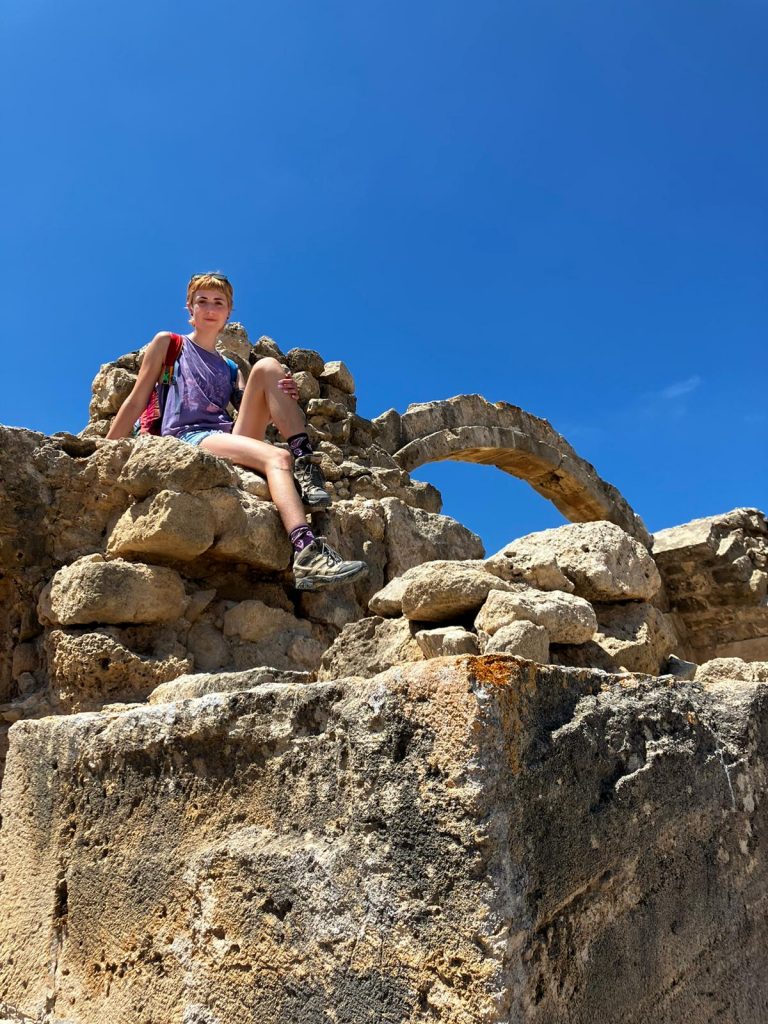
On Saturdays we are all led on field trips to different archaeological sites on the island of Cyprus. This weekend’s trip was to Paphos, the mythological birthplace (or landing place, depending on your myth) of Aphrodite. Although the “Tombs of the Kings” were impressive and beautiful, and the black rock that is (supposedly) the incarnate and aniconic form of the goddess was certainly magical, the highlight by far was a restaurant called, simply, “Mother’s.”
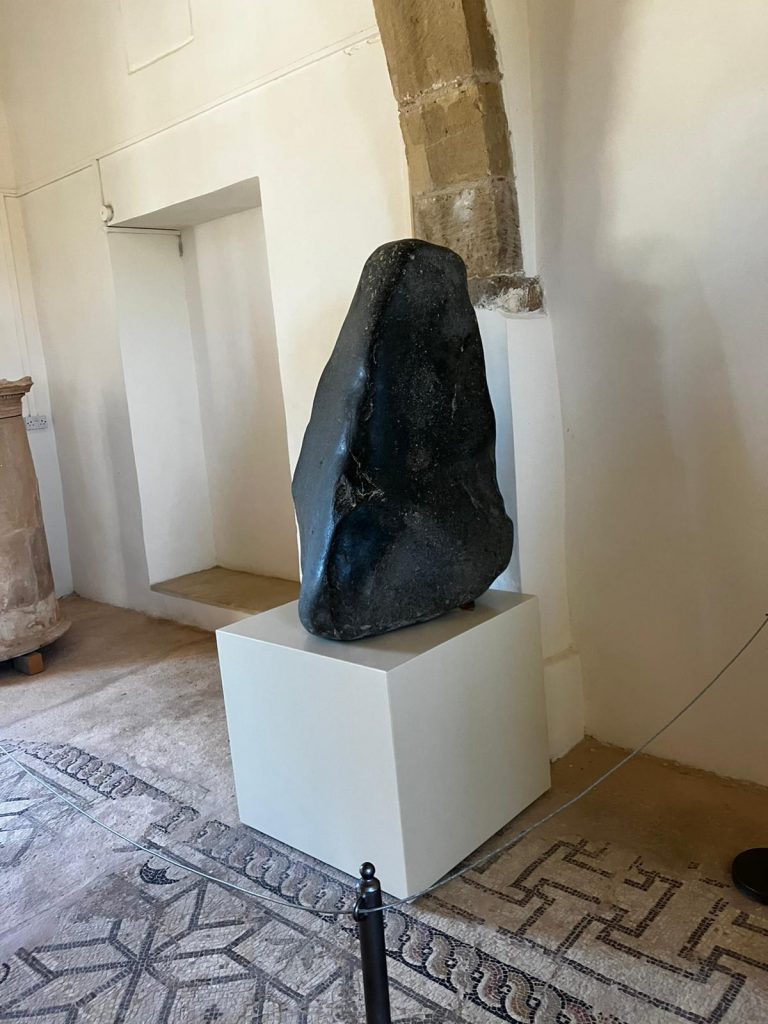
After a long morning of hot bus rides, sunny hiking, sweaty exploring, and failed museum operations, we were all hungry and grumpy. Although the beach boardwalk and its many loud barkers were inviting, Michael promised he had found a restaurant on google maps. I had faith. One hot, sunny, sweaty walk into a more residential and less tourist-ridden neighborhood revealed a home, flanked by potted plants and flaunting a veranda full of set tables. Deserted. A few brave members of the party ventured into the kitchen to the pleasant discovery of a short and shirtless old man working a stone oven. He sat us down and took our orders recommending the lamb above all else. Half an hour later everyone was presented with a full plate: veggie moussaka, barbequed chicken, stuffed peppers, and lamb… heavenly lamb. After the meal, the man returned bearing homemade drinks – on the house! Everyone slept well on the bus ride home.
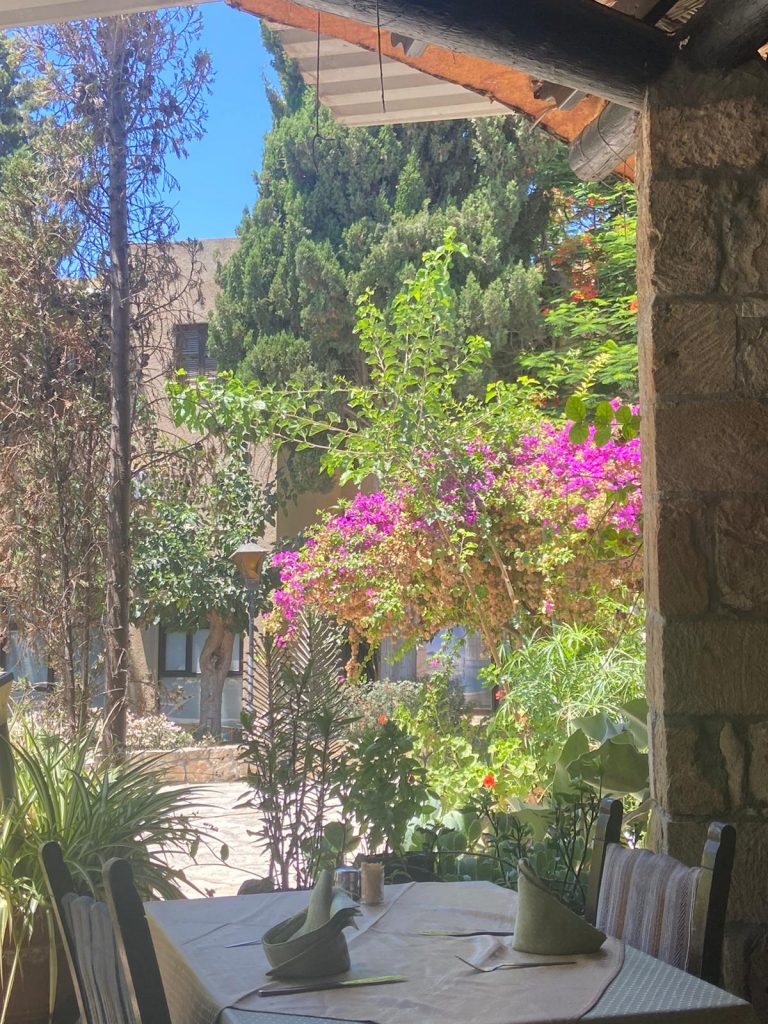
Two days later, after four hours of efficient digging, at 8:30 in the morning, second breakfast, the bees attacked. Remembering the coastal adventure in Paphos – the romance of Aphrodite, the delicious food cooked by the one old Cypriot, to lighten the mood at the dig site the students and supervisors had been singing along to the Mamma Mia movie soundtrack. The festivities were cut short by the attacking bees, driven to rage and stupor by their keeper. This attack came as a shock to many, but likely as a relief to the adults, sick of the ABBA, and many of the students, glad to escape the exposed glare of the sun in favor of pottery washing in Terra Ombra.


